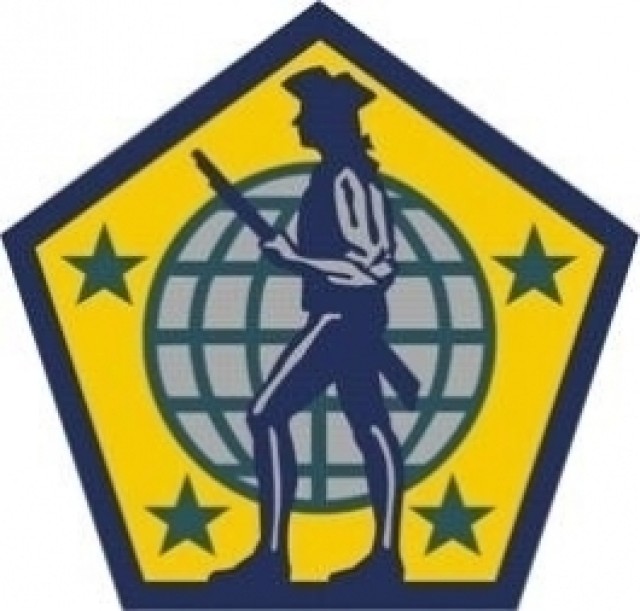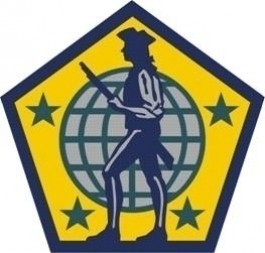As Fort Knox transitions to a multi-functional, multi-focused, multi- command with Accessions Command in the lead, employees on the installation are also encountering change and growth.
Part of that growth has been the Human Resources Command, which means more employment opportunities for those on post and in the surrounding communities.
Tom McKnight, the HRC deputy G-3, said to assist with the large turnover of employees because many chose to remain in former HRC sites at St. Louis, Indianapolis, and Alexandria, Va., instead of moving to Knox, the command implemented a training academy to increase the speed with which employees could perform their functions.
The academy uses a three-tier approach to training. The 40-hour training is done in five days. But there are cases when 40 hours aren't needed. The number of hours required, is relative to each employee's background.
"Level one is the resident course," the deputy said. "The resident course is for a new HRC employee who has never had any exposure to military human resources.
"(We) teach them about the Army and HRC. We will take Mr. Jones or Mrs. Smith that was working in downtown Radcliff and teach them what a private is, a sergeant, and general. We teach them manning philosophies and the basic principles with which we assign Soldiers."
Level one training also includes understanding how the Army runs, its personnel, and the organization and major functions of HRC.
He added that during tier one training new employees receive required annual civilian training in subjects such as anti-terrorism and subversion and espionage directed against the Army.
The second level consists of directorate-level training programs designed to ensure that their workforce is proficient in the appointed duties.
"We do desk-level training," explained Mr. McKnight. "If you are coming to be a career manager or assignment person, then the next phase of training will build off of tier one.
"Now you know the Army's (function and how we) reassign (Soldiers) and where to reassign them. Now you use the physical systems to accomplish your daily job."
Level three consists of professional development courses and ensures that all professional certifications are met. All training will inculcate the idea of exceptional service to support America's Army.
"Tier three is more for professional develop-ment," he said. "We try to make sure that our folks have some specific system things like a staff action officer course.
"We teach (them) the complexity of getting a document to the Vice Chief of Staff of the Army or preparing general officer level correspondence."
The deputy pointed out that 340 employees have received level one training. Upon successful completion of the course students receive certificates.
Sgt. 1st Class Justin Bean, the noncommissioned officer in charge of the training academy, said employees have been receptive to receiving the training and many have said it was helpful prior to starting work.
David Smith, the HRC Training Academy officer in charge, said new employees are given a green book which explains rank in the Army, the Army's history, and other pertinent facts about the Army.
HRC also offers an external online Distance Learning Program for those who want to learn about the Army and HRC. Mr. Smith said the online program teaches Army 101 and a class introduction to basic Army questions and
how the Army is organized.
"Introduction to Human Resources Command breaks down a general description (about) each one directorate," the OIC said.
Mr. McKnight added that the online distance learning program was implemented because of the numerous requests from external agencies.
"Sen. (Jim) Bunning's office allocated congressional dollars and we contracted through Fort Knox with an organization called Column Six," he explained. "We developed a free of charge distance learning program. It is probably 60 percent of what we teach in the level one at the training academy.
"We couldn't put some stuff out there due to proprietary. The reason we did this is we know that we have several folks that are being displaced by BRAC because they chose not to move to Fort Benning, (Ga.) as part of the Maneuver Center move or some other BRAC changes on Fort Knox."
He added that the online distance learning training also affords the community an opportunity to glimpse into the core enterprise of HRC.
"It gives them some exposure by taking this web-based training," he said. "It does in no way, shape, or form guarantee you or suggest you are going to have an advantage of getting employment at HRC.
"What it does is let you have some insight into what we do, and it gives you some indication that you have the personal desire or aptitude to do what we do. You might start taking that training and decide it's not for you."
The deputy also said there are three different avenues available to those who are interested in learning about
HRC-the free online distance learning program, the internal training academy, and Elizabethtown Community and Technical College.
"We want (to provide) every tool possible to make them successful," he said.


Social Sharing